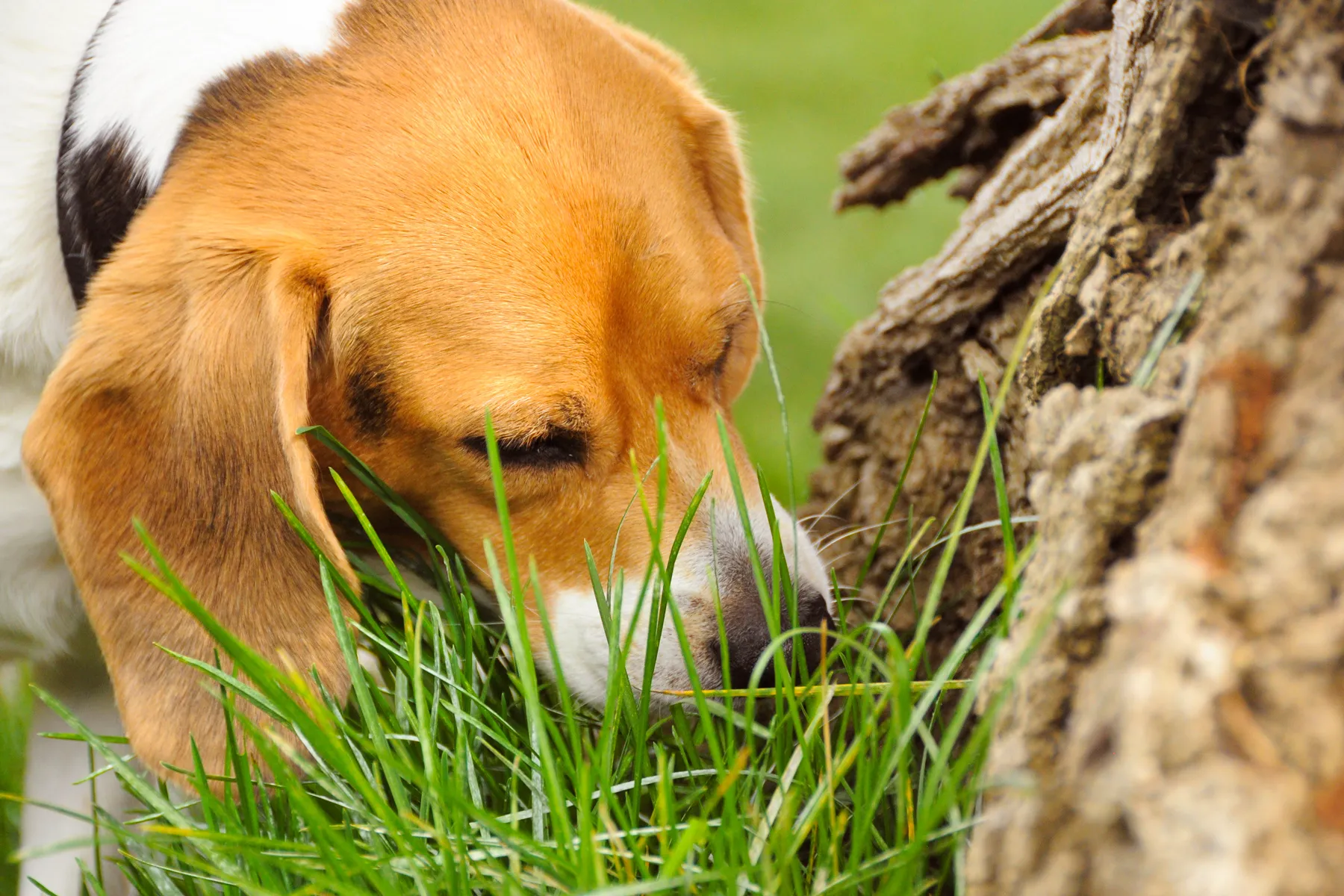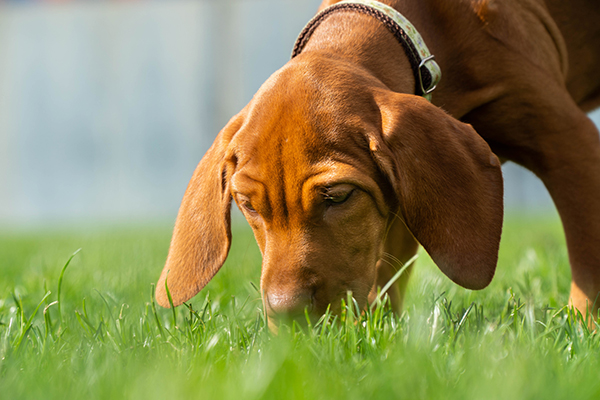
In addition grass eating does not always result in vomiting. Dogs may just vomit after eating grass but they will not suffer from any illness after consuming such foods.

In fact grass can reduce their chances of getting infections since the plant can help eliminate intestinal parasites in their guts.
Do dogs puke after eating grass. However recent studies show that most dogs are not unwell before eating grass or at least they are not showing any signs of sickness. To be more accurate according to their owners less than 10 percent of the dogs included in the study seemed to be sick before the grass eating session. In addition grass eating does not always result in vomiting.
Grass is a common ingredient in dog vomit. Dogs often eat grass when they have an upset stomach which can sometimes induce vomiting. If they are eating grass on a regular basis however it is a possibility that they can be ingesting more pesticides and parasites.
Eating grass doesnt necessarily have to be a sign of nausea or a stomach upset. However if eating grass is linked to vomiting your dog may be eating grass to make themselves vomit. However it is not normal to vomit regularly or repeatedly.
The consumption of grass can be a sign that your dog is attempting to relieve an upset stomach and some pups do vomit soon after eating it. That said fewer than 25 percent of dogs. However studies show that less than 25 of dogs vomit after eating grass.
And only 10 of dogs show signs of illness prior to eating grass. This means those grass-eating dogs who vomit were already sick when they ate the leaves. It is true that in some cases a dog may be eating grass to induce vomiting.
This could be because they ate something bad already which is causing nausea or other stomach discomforts. They often dont eat the grass However a dog who is eating grass to make themselves throw up probably wont actually eat the grass. The action is more like them swallowing it whole without chewing it at all.
Since studies show that less than 25 of dogs vomit after eating grass it is unlikely that they turn to the green stuff as a form of self-medication. In fact only 10 of dogs show signs of illness prior to eating grass. The bottom line is that the majority of grass-eating.
If your dog simply cannot stop vomiting after eating food and grass bring him to the vet or emergency animal clinic as soon as possible. There could be something else wrong. He may have infectious or systemic disease he may have a foreign body or even a twisted stomach.
Eating grass may be a sign that your dog isnt getting enough nutrients from their food. Heatstroke and Car Sickness Furthermore vomiting can be a by-product of environmental factors. For example excessive heat and dehydration can lead to heatstroke in dogs.
It is essential to keep dogs cool and hydrated in the heat. Puppies will copy habits from older dogs and especially his mother. If he observes the mother eating grass he is definitely going to try it as well.
In the wild dogs live in packs with a dominant dog and the rest submit to him. Most dogs will eat grass in order to make themselves sick so if you notice your dog scurrying around the garden eating grass the chances are that they feel sick and theyre trying to make themselves throw up to feel better. Grass does not have any negative health effects on dogs.
Dogs may just vomit after eating grass but they will not suffer from any illness after consuming such foods. In fact grass can reduce their chances of getting infections since the plant can help eliminate intestinal parasites in their guts. Infrequent projectile bile from your dog may be due to Bilious Vomiting Syndrome.
In addition to lack of food this syndrome may be caused by a lack of fiber in the dogs diet drinking a lot of water certain medications allergies eating fatty foods or eating grass. To help combat Bilious Vomiting Syndrome in dogs try breaking up meal time into multiple smaller meals and feed your dog a low-fat high-fiber diet. Many dogs that are eating grass to throw up have heartburn and acid reflux.
These dogs do well eating a hypoallergenic high-moisture diet and consuming several small meals spaced throughout the day. Once your pets stomach feels more comfortable the symptoms should be greatly reduced.